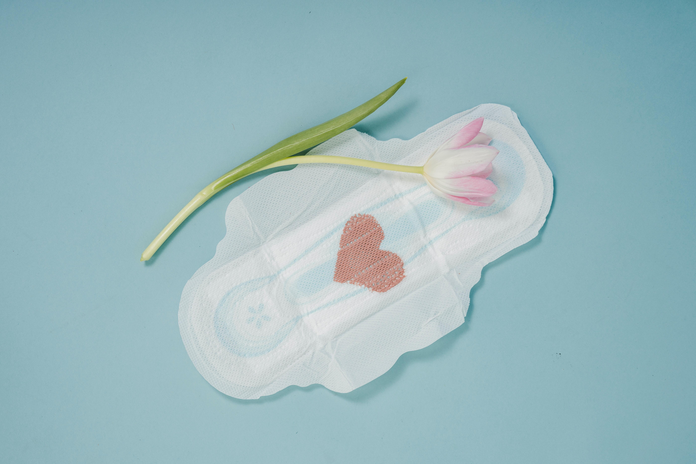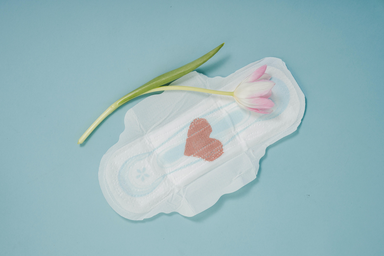Have you ever had a pregnancy scare because your period came 4 weeks late? As someone whose period has been regular her whole life, when my period was just 4 days late, it threw me into a panic. I even bought a pregnancy test kit to see if I was pregnant.
However, for many other women, irregular periods might be a common occurrence — although no less worrying. If you’re concerned over the regularity of your menstrual cycle, or confused about whether you should be concerned at all, here are some facts you need to know about irregular periods.
What Does a Regular Period Cycle Look Like?
A full period cycle starts on the first day of your period, and lasts till the first day of your next period. An average period cycle lasts for 28 days. However, this should not be taken as an absolute norm: according to the International Federation of Obstetrics and Gynaecology (FIGO), a normal menstrual cycle ranges between 24 to 38 days, and the duration of flow ranges from 4.5 to 8 days.
Even if your period cycle falls outside of this range, but is pretty stable and regular across the cycles, you probably don’t have to worry that much.
Signs of an Irregular Period Cycle
Although individual differences exist, you might experience what is considered an irregular cycle if:
- Your period cycle falls outside of the 24-38 days range
- Your period cycle varies in length every cycle
- Your period lasts for more than 7 days
- Unusually heavy bleeding (soaking through pad/tampon every hour) or passing big blood clots during your period
- Severe pain
Types of Irregular Periods
There are finer distinctions among irregular periods, such as:
Disturbances of Regularity
Absent menstrual bleeding (amenorrhea): Absence of period, which means a missed period for 90 days or longer.
Disturbances of Frequency
Infrequent menstrual bleeding (previously known as Oligomenorrhea): one or two period cycles in a 90-day period window.
Frequent menstrual bleeding: more than four period cycles in a 90-day window *this term does not include erratic intermenstrual bleeding).
Disturbances of the Duration of Flow
Prolonged menstrual bleeding: recommended to be used to describe periods with a duration of flow that exceeds 8 days on a regular basis.
Shortened menstrual bleeding: usually used to describe periods with a flow that lasts no longer than 2 days. The bleeding is also usually light in volume.
Common Factors that Affect Your Period Cycle
Before attributing the cause of irregular bleeds to the following factors, it is best that you consult a doctor for a proper evaluation/diagnosis.
Stress and Anxiety
We often hear about how stressing over your period not coming just makes it come even later. Well, there’s some truth to that. Stress is not just an emotion in our heads but can activate certain hormones, such as corticotropin–releasing hormone (CRH) which can suppress reproductive hormones in our bodies. Menstrual pain and irregularity can all be affected by these changes.
Exercise routines and eating habits
A sudden increase in workout intensity or strenuous training like that of athletes can disrupt hormone levels, affecting the menstrual cycle. Similarly, dietary changes and losing too much weight can de-regulate your hormones which causes variations in the menstrual cycle. It is generally advised to keep within a normal Body Mass Index (BMI) to keep your body healthy and well-functioning.
Birth Control consumption
Birth control pills contain hormones that prevent pregnancy in a few ways that may affect ovulation — the release of your egg from the ovary. This can sometimes lighten your period blood flow or change your menstrual cycle.
Medical conditions
Common medical conditions such as polycystic ovarian syndrome (PCOS) can lead to irregular menses. This condition also puts a person at risk for developing health complications such as type 2 diabetes mellitus.
Tracking Your Period
Here are some of the factors you should take note of when tracking your period. If there are worrying deviations from your normal period cycles, take note of the abnormalities and consult a medical professional.
Start and End date
Record the first and last day of your period from when you start spotting blood to when blood flow ends completely. This is so you can compare the lengths of your periods and note when it is unusually longer or shorter.
Spotting blood
Take note of days where you spot abnormal blood flow or spot when you are not supposed to be having your period.
Flow
It might be useful to also take note of your blood flow during your period. For example, how heavy the bleeding is can be judged by how often you need to change your pad, tampon or menstrual cup and you can also observe if there are unusually many blood clots.
Colour
Observe if your period blood is unusually pink, red, brown or darker.
Pain
Record the amount of pain you experience and for how many hours or days before and during your period. This can help you track if the pain is more severe or for longer than usual so you can report these signs accurately to a medical professional when needed.
To make things easier for yourself, you can also use a period tracking application. I personally make use of two different applications to track my period: Health App, a default health tracking app on Apple devices, and Flo, a female health mobile application that allows you to track your period cycle and also engage in discussions on various female health topics with other users.
Tracking your period regularly will make it easier for your doctor to make a more accurate and informed judgement of your condition. If you experience any signs of an irregular period for prolonged periods, professional medical advice should be sought. Here is a compiled list of gynaecologists you can visit in Singapore. Otherwise, you can also visit your family GP and ask for a referral.
—
Her Campus at Nanyang Tech thanks shy for contributing this article
shy is a local brand committed to improving sexual health literacy amongst youths in Singapore. Keen to know more about them? Check out their website here.

